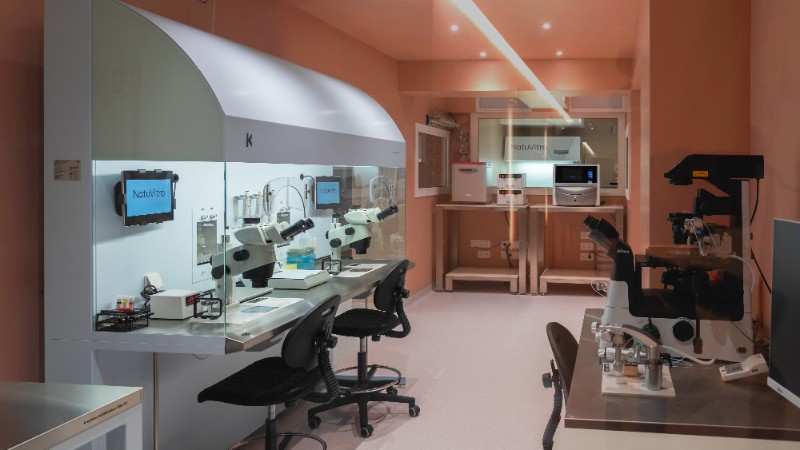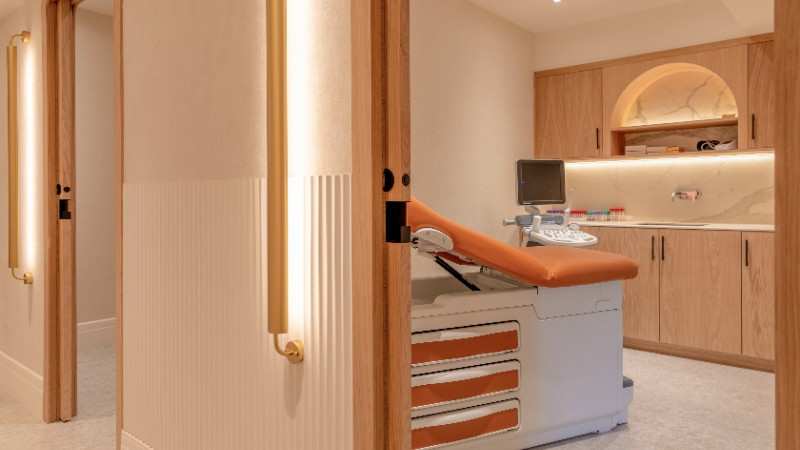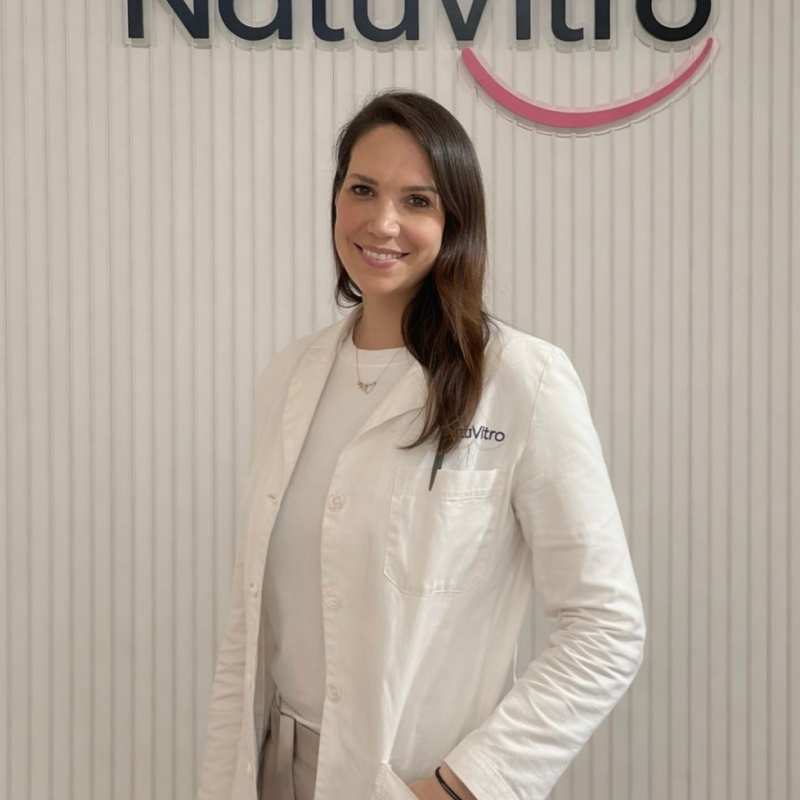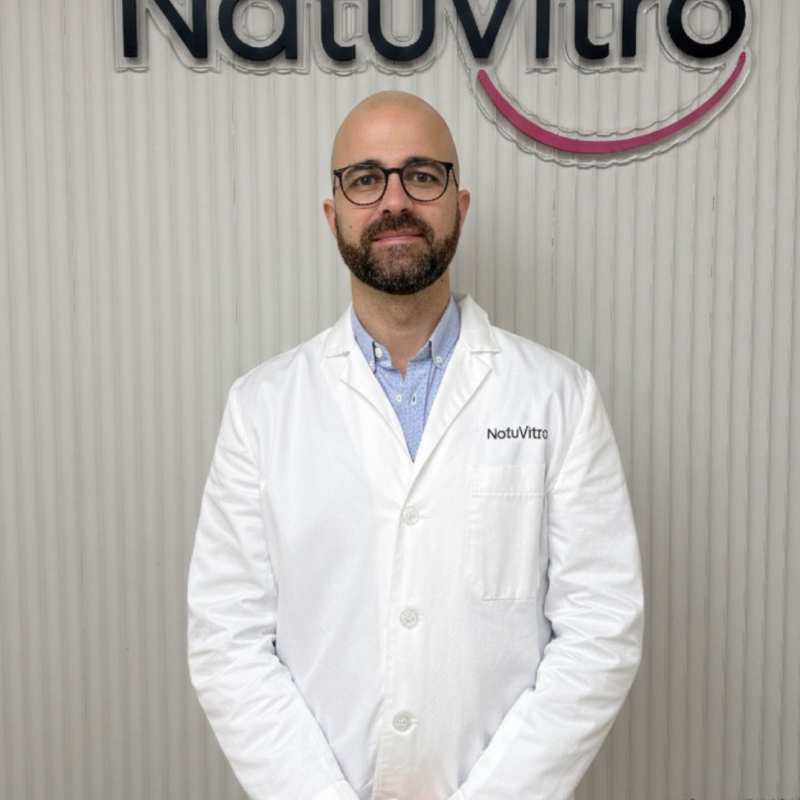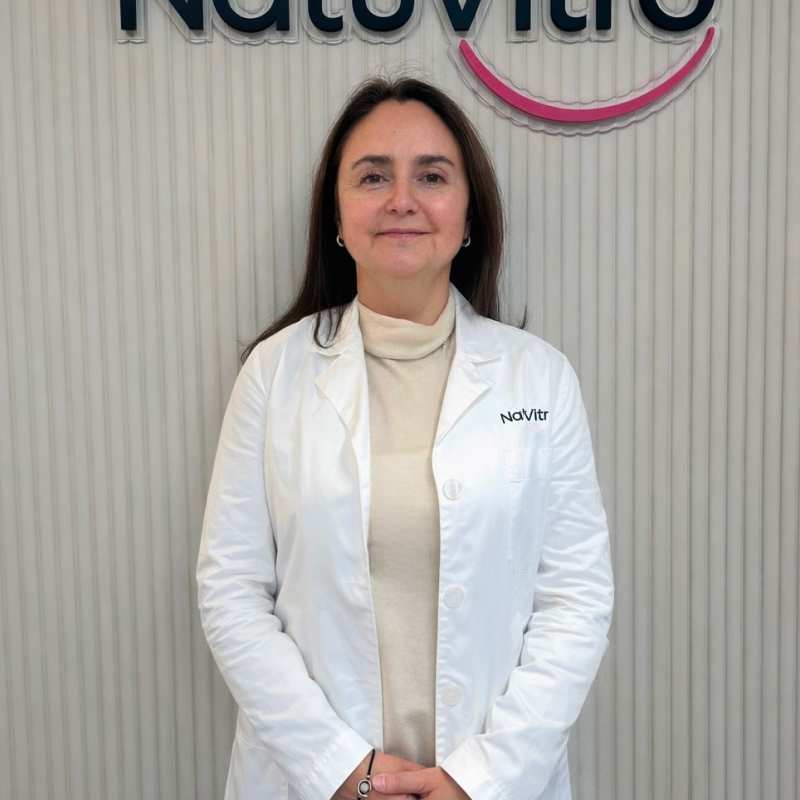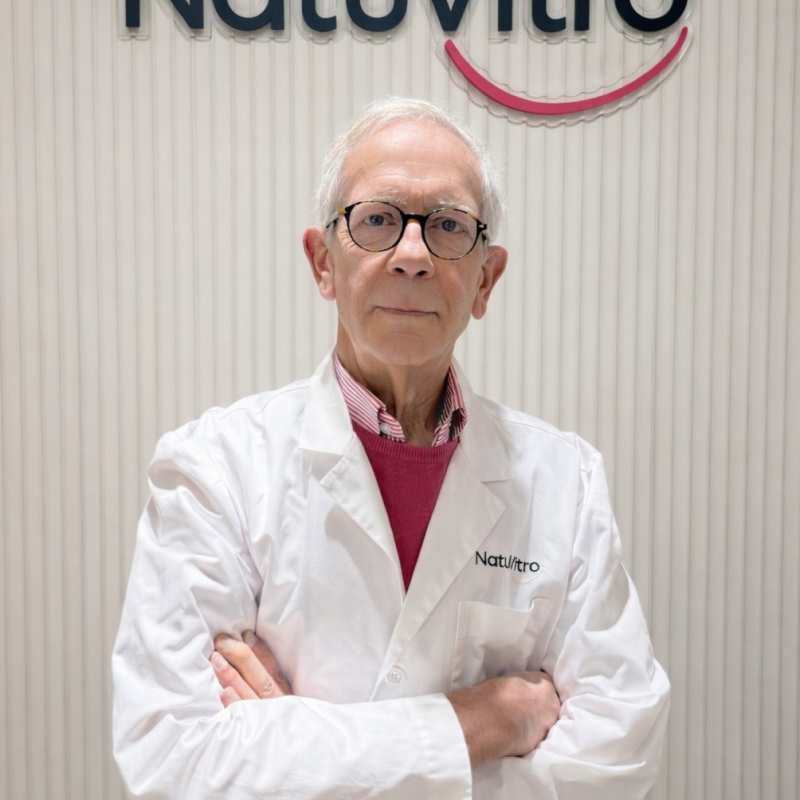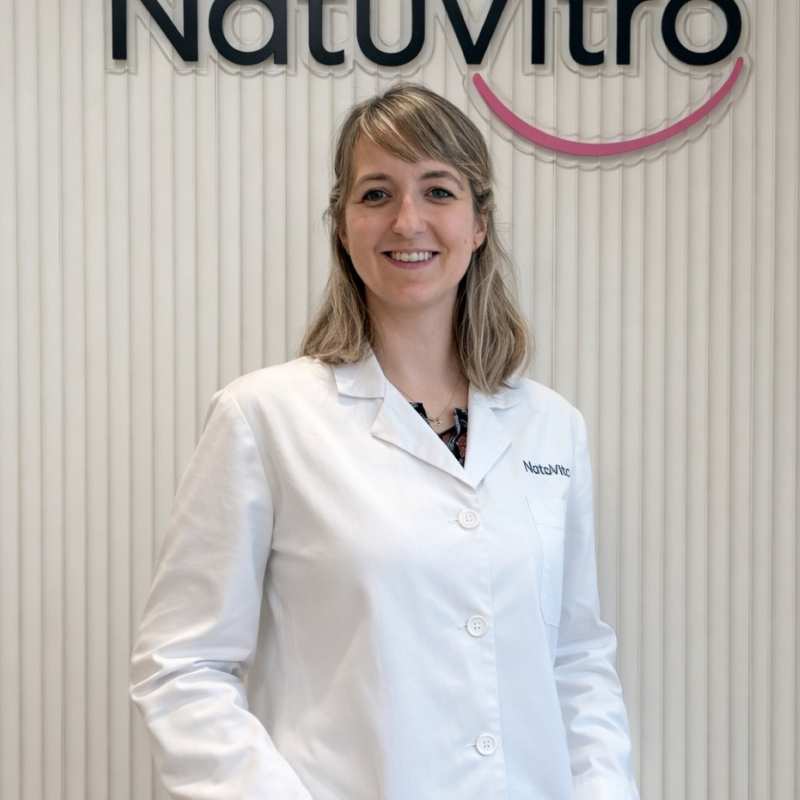
Additionally, we will navigate the intricate terrain of ethical dilemmas surrounding egg donation, and how these dilemmas are resolved within the context of this medical procedure. Furthermore, we will also investigate the international differences in regulations governing egg donation, shedding light on how various countries have crafted distinct legal frameworks to address this unique reproductive process.
As we embark on this exploration, it's important to understand that the legal and ethical dimensions of egg donation are deeply intertwined. They play a crucial role in shaping the practice and ensuring the protection of the rights and well-being of all parties involved - the donors, recipients, and resulting offspring. Real-life case studies will serve as our lenses into the practical challenges and complexities that emerge in the legal realm, as we examine instances where disputes or issues have arisen in the course of egg donation arrangements.
Moreover, we will delve into the ethical considerations that pervade egg donation, exploring the moral dilemmas that individuals and healthcare professionals may grapple with. We will highlight how these dilemmas are navigated, and the mechanisms in place to ensure that the process maintains a high standard of ethical conduct.
Lastly, the international dimension of egg donation regulations will be a point of focus, highlighting the striking variations in legal frameworks across different countries. By comparing and contrasting these international differences, we can gain a comprehensive understanding of how cultural, social, and legal factors influence the regulation of egg donation on a global scale.
Throughout this exploration, we aim to provide a comprehensive overview of the legal and ethical aspects of egg donation, offering valuable insights into a topic that is not only a matter of medical and reproductive significance but also a window into the broader discussions on ethics, human rights, and the intricacies of cross-border regulations.
Navigating the Legal Landscape: An overview of the legal framework governing IVF with egg donation in France, including key regulations and requirements.
In France, the legal framework governing IVF with egg donation is subject to stringent regulations and requirements, which have been designed to ensure ethical and safe practices in assisted reproduction. Below, I will outline the key aspects of the legal framework for IVF with egg donation in France:
In France, embryo donation is legal and well-regulated. The law allows couples to donate surplus embryos from their own IVF procedures to other couples who are struggling with infertility. The process involves a strict screening of both the donors and the recipients to ensure compatibility and reduce potential health risks.
Donors in France are generally anonymous, which means that recipients are not provided with identifying information about the donor. This anonymity is intended to protect the privacy of both parties and is seen as a way to avoid potential legal or emotional complications in the future.
French law imposes age restrictions on both donors and recipients. Donors must be between the ages of 18 and 45, and recipients must be under 43 years old.
The law limits the number of embryos that can be transferred during IVF treatments, aiming to reduce the risk of multiple pregnancies and their associated complications. This is usually limited to one or two embryos, depending on the woman's age and health status.
Both donors and recipients are subject to thorough medical and psychological evaluations to ensure they are physically and emotionally prepared for the process. This evaluation is an essential part of the ethical framework surrounding IVF in France.
In France, legal parentage is established based on genetic affiliation. This means that the woman who gives birth to the child is considered the legal mother. In cases of egg donation, the recipient's spouse or partner can become the legal father if they provide their consent.
It is illegal to buy or sell eggs or embryos in France. The donation process is altruistic, and donors cannot receive financial compensation for their contributions. This strict prohibition on commercialization is in line with the country's ethical stance on assisted reproduction.
Embryos can only be stored for a specific period of time, and their use is strictly regulated. This ensures that embryos are not indefinitely frozen and that their use is in accordance with the law.
IVF with egg donation in France is closely monitored by ethical committees and regulatory bodies, ensuring that the procedures remain in compliance with established ethical standards. These committees oversee the entire process to maintain the highest level of patient safety and ethical conduct.
Donor-conceived children have the right to access non-identifying information about their donors when they reach adulthood. This allows them to learn about their genetic heritage while still respecting the donors' anonymity.
It's essential to note that these regulations are in place to safeguard the interests of all parties involved in IVF with egg donation, with a strong emphasis on ethical and safe practices. The French legal framework surrounding IVF is well-established and plays a crucial role in maintaining the integrity of assisted reproduction procedures in the country.
Real-Life Legal Challenges: Examining case studies and real-life examples of legal issues that have arisen in the context of egg donations for IVF in France. This section will shed light on the complexities and potential pitfalls in the process.
Examining the real-life legal challenges for IVF with egg donation in France reveals a landscape where intricate ethical and legal considerations often intersect. Although French regulations provide a robust framework for IVF with egg donation, several complexities and potential pitfalls have arisen over the years. In this essay, we'll explore some of these issues through case studies and real-life examples, shedding light on the legal intricacies in this context.
Case 1: Legal Parentage and Marital Status
One of the recurrent challenges in French IVF law involves legal parentage and marital status. In a notable case, a married couple underwent IVF using donated eggs. However, the couple's marriage faced difficulties, and they separated before the child was born. According to French law, the legal mother is the woman who gives birth, and the legal father is the spouse or partner of the birth mother if they provide consent.
This case raised questions about the legal status of the child, as the intended father and the child's biological father were not the same. It underscored the need to revisit the legal framework to accommodate situations where the marital status changes between conception and birth.
Case 2: Anonymity and the Right to Know
Anonymity of donors has long been a cornerstone of French IVF law. However, a growing number of donor-conceived individuals have begun to advocate for more transparency. In one instance, a donor-conceived individual sought information about their donor's identity, challenging the anonymity principle.
This case led to a debate about the balance between donor privacy and the rights of donor-conceived individuals to know about their genetic heritage. It highlighted the evolving ethical considerations surrounding donor anonymity in a society where individuals are increasingly interested in their genetic background.
Case 3: Cross-Border Challenges
IVF laws and regulations vary from one country to another. Cross-border egg donation cases have raised complex legal questions. In a notable case, a French couple traveled to a neighboring country where the egg donation laws were more permissive to undergo IVF. After a successful procedure, they returned to France with their child.
This case illuminated the challenges of harmonizing IVF laws across borders and ensuring that children conceived through such procedures are recognized legally in their home country. It also sparked discussions about the need for international agreements on assisted reproductive technologies.
Case 4: Egg Donation and Inheritance Rights
French law presents complexities in determining inheritance rights in cases of IVF with egg donation. In a particular case, a couple who had a child through egg donation faced difficulties in establishing inheritance rights, as the child did not share a biological connection with one of the parents.
This case emphasized the need for legal clarity regarding inheritance rights in cases of IVF with donated eggs, especially when the child's genetic heritage differs from the legal parents.
These real-life legal challenges highlight the intricate nature of IVF with egg donation in France. While the country's legal framework is designed to protect the interests of all parties involved, the complexities of marital status, anonymity, cross-border procedures, and inheritance rights have demonstrated the need for ongoing evaluation and potential legislative adjustments.
As society's understanding of assisted reproductive technologies continues to evolve, addressing these legal challenges in a manner that upholds ethical principles and protects the rights of all involved parties remains an ongoing and essential endeavor. It underscores the importance of adapting legal frameworks to meet the evolving needs and complexities of IVF with egg donation in France.
The Ethical Dimensions: Delving into the ethical dilemmas surrounding egg donation, exploring the moral considerations for donors, recipients, and healthcare professionals. This section will emphasize the importance of ethical decision-making in the fertility journey.
The ethical dimensions surrounding egg donation in the context of assisted reproduction are multifaceted and deeply intertwined with the moral considerations of donors, recipients, and healthcare professionals. Ethical decision-making in the fertility journey is of paramount importance to ensure the well-being and dignity of all involved parties. In this essay, we will explore these ethical dilemmas and the moral considerations that underpin them.
Autonomy and Informed Consent
One of the primary ethical principles in egg donation is the notion of autonomy, which underscores the importance of individual choice and informed consent. Donors must make their decision to donate eggs freely and without coercion. Recipients, too, must be fully informed about the procedures, potential risks, and the implications of using donor eggs.
Healthcare professionals play a crucial role in facilitating informed consent. They must ensure that all parties have a complete understanding of the process, including the physical and emotional aspects. Ethical issues may arise when consent is not adequately informed or when parties feel pressured to make decisions contrary to their own preferences.
Anonymity and Disclosure
The issue of anonymity in egg donation raises significant ethical questions. While anonymity has been a cornerstone of French law, donor-conceived individuals are increasingly advocating for their right to know about their genetic heritage. The ethical dilemma lies in balancing the privacy rights of donors with the desire of donor-conceived individuals to access this information.
The decision to maintain or change the anonymity principle has ethical implications for all parties. It requires a careful examination of the rights and interests of donors, recipients, and donor-conceived individuals, as well as a consideration of the potential emotional and psychological consequences of disclosure.
Commercialization and Financial Compensation
Egg donation laws in France strictly prohibit commercialization, emphasizing altruism and the absence of financial gain for donors. This ethical stance aims to prevent the commodification of human reproduction and the exploitation of donors. However, this raises questions about the financial and emotional well-being of donors.
Donors invest their time, effort, and incur potential physical risks, and should be compensated for these contributions. Ethical considerations include determining appropriate compensation levels to acknowledge these contributions without crossing the line into exploitation.
Cross-Border Egg Donation
Cross-border egg donation cases introduce ethical complexities. The varying legal and ethical frameworks across countries can lead to dilemmas regarding the best interests of the child and the rights of all parties involved. Recipients seeking treatment abroad must consider whether their actions comply with both the laws and ethical standards of their home country.
Healthcare professionals who engage in cross-border egg donation must navigate these complexities and ensure that they are acting in the best interests of their patients, all while respecting the ethical guidelines of their profession and the laws of their home country.
Ethical considerations in egg donation encompass a wide range of moral dilemmas, touching on autonomy, anonymity, commercialization, and cross-border issues. It is imperative that all parties involved, from donors to recipients and healthcare professionals, engage in thoughtful and ethical decision-making throughout the fertility journey. Striking a balance between the rights and interests of all involved parties while upholding ethical principles is central to ensuring that egg donation remains a respected and responsible practice within the context of assisted reproduction in France. The evolving landscape of ethical considerations in egg donation will continue to shape the practice, emphasizing the need for ongoing dialogue and reflection.
Resolving Ethical Quandaries: Discussing how these ethical dilemmas are addressed and resolved within the framework of IVF with egg donation. Highlighting the role of ethics committees and the importance of informed consent.
Resolving ethical quandaries in the context of IVF with egg donation is a multifaceted process that relies on the principles of ethical reflection, legal frameworks, and the active involvement of stakeholders. Central to this resolution are ethics committees, as well as the critical aspect of informed consent.
The Role of Ethics Committees
Ethics committees play a pivotal role in navigating the ethical dilemmas associated with IVF and egg donation. These committees are typically composed of experts in ethics, law, medicine, and psychology. Their primary mission is to provide guidance and ensure that ethical standards are upheld throughout the entire fertility journey.
Review and Guidance: Ethics committees review cases and provide guidance to healthcare professionals, donors, and recipients. They help to interpret and apply ethical principles within the specific context of each case, ensuring that the interests of all parties are considered.
Mediation: In cases where conflicts or ethical concerns arise, ethics committees serve as mediators, helping to find common ground among stakeholders. This can be crucial in situations where the interests of donors, recipients, and donor-conceived individuals may diverge.
Policy Development: Ethics committees may also contribute to the development and revision of policies and guidelines related to IVF with egg donation. This helps ensure that legal and ethical frameworks remain relevant and responsive to evolving societal values.
Informed Consent
Informed consent is at the heart of resolving ethical dilemmas in egg donation. It serves as a fundamental ethical safeguard, ensuring that all parties are aware of the implications of their decisions and have made choices freely and willingly.
Donor Consent: Donors must provide informed consent, which includes a thorough understanding of the medical procedures, potential risks, and the ethical implications of their donation. This consent is essential to respect the autonomy of donors and to avoid coercion or undue influence.
Recipient Consent: Recipients also must provide informed consent, acknowledging the use of donor eggs and fully understanding the ethical considerations associated with this choice. This helps ensure that they are making a well-informed decision in line with their values and desires.
Donor-Conceived Individuals: In cases where donor-conceived individuals seek access to information about their genetic heritage, the principles of informed consent come into play. Ethical considerations revolve around the right of these individuals to know their origins while respecting the privacy and consent of donors.
Balancing Ethical Considerations
Balancing the ethical considerations of autonomy, anonymity, financial compensation, and cross-border procedures requires thoughtful reflection and dialogue. It is essential to create an environment where all parties feel comfortable discussing their concerns and priorities openly.
In the realm of IVF with egg donation, addressing and resolving ethical dilemmas is an ongoing and evolving process. Ethics committees play a crucial role in guiding stakeholders through complex situations, while informed consent serves as a foundational principle for ensuring that decisions are made with full awareness and autonomy. The resolution of ethical quandaries in this field demands a delicate balance between upholding the rights and interests of all parties while respecting evolving societal values and ethical standards. This ongoing process of ethical reflection and consideration is essential to maintain the integrity and ethical practice of IVF with egg donation in France.
Crossing Borders: Exploring the international differences in egg donation regulations and the implications for patients considering IVF with egg donation in France, including how these regulations compare to Spain's.
Crossing borders for IVF with egg donation introduces a complex interplay of international differences in regulations and has significant implications for patients considering this fertility treatment, particularly when comparing France's regulations with those of Spain. In this essay, we will explore the divergent international regulations and their potential impact on patients.
International Differences in Egg Donation Regulations
France: As previously discussed, France's egg donation regulations are characterized by strict laws prohibiting commercialization, emphasizing altruism in the donation process, and ensuring donor anonymity. Legal parentage is determined based on genetic affiliation, and there is a preference for maintaining donor anonymity.
Spain: In contrast, Spain has a more permissive approach to egg donation. The country allows non-anonymous donation, meaning that recipients have the option to choose between anonymous and non-anonymous donors. This choice can have significant implications for the child's ability to access information about their genetic heritage in the future. Spain also permits limited compensation for donors to cover their expenses, making the process more financially viable for donors.
Implications for Patients Considering IVF with Egg Donation in France
Patients considering IVF with egg donation in France and contemplating cross-border treatment in Spain must grapple with several important implications:
Choice of Donor: In Spain, patients have the option to choose between anonymous and non-anonymous donors. This choice can deeply impact the child's future ability to access information about their genetic background. Patients must consider their values and preferences when making this crucial decision.
Financial Considerations: The ability to provide compensation to donors in Spain may make the process more financially accessible for some patients. This financial aspect is essential to consider, as it can significantly influence the choice of destination for IVF with egg donation.
Legal Implications: Patients who undergo IVF with egg donation in Spain but reside in France should consider the legal implications of having a child conceived under different regulations. Understanding how parentage, inheritance rights, and other legal aspects may differ between the two countries is critical.
Psychological and Emotional Factors: Patients must also contemplate the psychological and emotional aspects of choosing between anonymous and non-anonymous donors. How will this choice affect the child and the family dynamics in the long term?
Cross-Border Challenges: Patients should be prepared for the potential complexities of navigating cross-border egg donation. This includes ensuring that the IVF clinic in Spain complies with the regulations of both countries and that the child's legal status is recognized in France.
Crossing borders for IVF with egg donation is a decision that involves not only medical considerations but also profound ethical, legal, and emotional aspects. Patients must weigh the differences in regulations between France and Spain, considering factors like donor anonymity, financial aspects, and the legal implications for their family. In making this decision, patients should be well-informed, consult with medical professionals and legal experts, and carefully consider their own values and priorities to ensure a successful and ethically sound fertility journey.
Patient-Centered Care: Focusing on the patient's perspective, addressing their rights, responsibilities, and considerations when seeking IVF with egg donation in France.
Patient-centered care is an essential aspect of any healthcare journey, including IVF with egg donation in France. By focusing on the patient's perspective, we can better understand their rights, responsibilities, and considerations when seeking such treatment. In this essay, we will delve into these critical aspects of patient-centered care.
Patient's Rights
Informed Consent: Patients have the right to be fully informed about the entire process of IVF with egg donation. They should understand the medical procedures, potential risks, and ethical implications. Informed consent is essential for respecting the patient's autonomy.
Choice of Donor: Patients have the right to choose the type of donor, whether anonymous or non-anonymous, according to their values and preferences. This choice can significantly impact the child's future ability to access information about their genetic heritage.
Privacy and Confidentiality: Patients' privacy and confidentiality must be protected throughout the process. This includes ensuring that sensitive medical and personal information is handled with the utmost care and respect.
Respect for Cultural and Religious Beliefs: Patients have the right to have their cultural and religious beliefs respected throughout the IVF journey. Healthcare providers should be sensitive to these beliefs and adapt care accordingly.
Patient's Responsibilities
Informed Decision-Making: Patients have a responsibility to actively participate in their care by seeking information, asking questions, and making informed decisions. They should engage in shared decision-making with their healthcare team.
Compliance with Medical Advice: Patients must follow medical advice and treatment plans to maximize the chances of a successful outcome. This includes adhering to medication schedules and lifestyle recommendations.
Emotional and Psychological Well-being: Patients should recognize the emotional and psychological challenges that can accompany IVF with egg donation. Seeking emotional support when needed, such as counseling or therapy, is a responsibility that contributes to a positive experience.
Patient's Considerations
Emotional Preparedness: Patients should consider their emotional preparedness for the IVF journey. The process can be emotionally taxing, and seeking support from loved ones or professional counselors can be beneficial.
Financial Planning: IVF with egg donation can be financially demanding. Patients should carefully consider the costs involved and plan accordingly. This includes understanding the potential financial differences between treatment in France and other countries.
Legal Implications: Patients must consider the legal implications of IVF with egg donation, particularly if they plan to undergo treatment in a different country. Understanding parentage, inheritance rights, and the recognition of the child's legal status is crucial.
Future Perspectives: Patients should consider the long-term implications of their decisions, including how choices made during IVF with egg donation may affect their family dynamics and the child's future.
Patient-centered care in IVF with egg donation in France revolves around respecting patients' rights, acknowledging their responsibilities, and addressing their unique considerations. By providing comprehensive information, ensuring informed consent, and considering the emotional and psychological well-being of patients, healthcare providers can facilitate a positive and patient-centric fertility journey. Patients, in turn, must actively engage in their care, make informed decisions, and take steps to safeguard their emotional and financial well-being, all while considering the long-term implications of their choices. Ultimately, patient-centered care ensures that the journey is tailored to the individual needs and values of those seeking IVF with egg donation in France.
Summarizing the key takeaways and emphasizing the importance of a holistic approach that respects both the legal and ethical dimensions of IVF with egg donation for patients in Spain considering France as their destination.
Seeking IVF with egg donation in Spain can offer several advantages for French individuals, making it an attractive option.
In Spain, patients have the option to choose between anonymous and non-anonymous donors, giving them greater control over the future accessibility of their child's genetic heritage information. Spain allows for limited compensation to egg donors, which can make the process more financially accessible for both donors and recipients. This can reduce the financial burden on patients. Spain's regulations regarding IVF with egg donation are more permissive, offering a more flexible approach to fertility treatment compared to the stringent regulations in France.
Spain is geographically close to France, making cross-border treatment more convenient for French patients. Traveling to Spain for IVF is logistically straightforward. Patients who undergo IVF with egg donation in Spain and reside in France may find more consistent legal recognition and support in Spain, given the country's more permissive regulations.
The choice of anonymous or non-anonymous donors in Spain allows patients to align their treatment with their emotional and psychological well-being and preferences.
The combination of donor choice, financial accessibility, regulatory flexibility, cross-border convenience, legal consistency, and psychological well-being considerations makes Spain an appealing option for French individuals seeking IVF with egg donation. However, the choice ultimately depends on individual preferences and values, and patients should carefully consider their specific needs and circumstances when making this decision.
Our experts are ready to examine your case history, clarify your choices, and address every question you have.
Don't wait to make informed decisions – your personalized guidance awaits!
- Spain (España)+34
- France (La France)+33
- Italy (Italia)+39
- United Kingdom+44
- United States+1
- Belgium (België)+32
- Switzerland (Schweiz/Suisse)+41
- Germany (Deutschland)+49
- Netherlands (Nederland)+31
- Afghanistan (افغانستان)+93
- Albania (Shqipëri)+355
- Algeria (الجزائر)+213
- American Samoa+1
- Andorra+376
- Angola+244
- Anguilla+1
- Antigua and Barbuda+1
- Argentina+54
- Armenia (Հայաստան)+374
- Aruba+297
- Ascension Island+247
- Australia+61
- Austria (Österreich)+43
- Azerbaijan (Azərbaycan)+994
- Bahamas+1
- Bahrain (البحرين)+973
- Bangladesh (বাংলাদেশ)+880
- Barbados+1
- Belarus (Беларусь)+375
- Belize+501
- Benin (Bénin)+229
- Bermuda+1
- Bhutan (འབྲུག)+975
- Bolivia+591
- Bosnia and Herzegovina (Босна и Херцеговина)+387
- Botswana+267
- Brazil (Brasil)+55
- British Indian Ocean Territory+246
- British Virgin Islands+1
- Brunei+673
- Bulgaria (България)+359
- Burkina Faso+226
- Burundi (Uburundi)+257
- Cambodia (កម្ពុជា)+855
- Cameroon (Cameroun)+237
- Canada+1
- Cape Verde (Kabu Verdi)+238
- Caribbean Netherlands+599
- Cayman Islands+1
- Central African Republic (République centrafricaine)+236
- Chad (Tchad)+235
- Chile+56
- China (中国)+86
- Christmas Island+61
- Cocos (Keeling) Islands+61
- Colombia+57
- Comoros (جزر القمر)+269
- Congo (DRC) (Jamhuri ya Kidemokrasia ya Kongo)+243
- Congo (Republic) (Congo-Brazzaville)+242
- Cook Islands+682
- Costa Rica+506
- Côte d’Ivoire+225
- Croatia (Hrvatska)+385
- Cuba+53
- Curaçao+599
- Cyprus (Κύπρος)+357
- Czech Republic (Česká republika)+420
- Denmark (Danmark)+45
- Djibouti+253
- Dominica+1
- Dominican Republic (República Dominicana)+1
- Ecuador+593
- Egypt (مصر)+20
- El Salvador+503
- Equatorial Guinea (Guinea Ecuatorial)+240
- Eritrea+291
- Estonia (Eesti)+372
- Eswatini+268
- Ethiopia+251
- Falkland Islands (Islas Malvinas)+500
- Faroe Islands (Føroyar)+298
- Fiji+679
- Finland (Suomi)+358
- French Guiana (Guyane française)+594
- French Polynesia (Polynésie française)+689
- Gabon+241
- Gambia+220
- Georgia (საქართველო)+995
- Ghana (Gaana)+233
- Gibraltar+350
- Greece (Ελλάδα)+30
- Greenland (Kalaallit Nunaat)+299
- Grenada+1
- Guadeloupe+590
- Guam+1
- Guatemala+502
- Guernsey+44
- Guinea (Guinée)+224
- Guinea-Bissau (Guiné Bissau)+245
- Guyana+592
- Haiti+509
- Honduras+504
- Hong Kong (香港)+852
- Hungary (Magyarország)+36
- Iceland (Ísland)+354
- India (भारत)+91
- Indonesia+62
- Iran (ایران)+98
- Iraq (العراق)+964
- Ireland+353
- Isle of Man+44
- Israel (ישראל)+972
- Italy (Italia)+39
- Jamaica+1
- Japan (日本)+81
- Jersey+44
- Jordan (الأردن)+962
- Kazakhstan (Казахстан)+7
- Kenya+254
- Kiribati+686
- Kosovo+383
- Kuwait (الكويت)+965
- Kyrgyzstan (Кыргызстан)+996
- Laos (ລາວ)+856
- Latvia (Latvija)+371
- Lebanon (لبنان)+961
- Lesotho+266
- Liberia+231
- Libya (ليبيا)+218
- Liechtenstein+423
- Lithuania (Lietuva)+370
- Luxembourg+352
- Macau (澳門)+853
- North Macedonia (Македонија)+389
- Madagascar (Madagasikara)+261
- Malawi+265
- Malaysia+60
- Maldives+960
- Mali+223
- Malta+356
- Marshall Islands+692
- Martinique+596
- Mauritania (موريتانيا)+222
- Mauritius (Moris)+230
- Mayotte+262
- Mexico (México)+52
- Micronesia+691
- Moldova (Republica Moldova)+373
- Monaco+377
- Mongolia (Монгол)+976
- Montenegro (Crna Gora)+382
- Montserrat+1
- Morocco (المغرب)+212
- Mozambique (Moçambique)+258
- Myanmar (Burma) (မြန်မာ)+95
- Namibia (Namibië)+264
- Nauru+674
- Nepal (नेपाल)+977
- New Caledonia (Nouvelle-Calédonie)+687
- New Zealand+64
- Nicaragua+505
- Niger (Nijar)+227
- Nigeria+234
- Niue+683
- Norfolk Island+672
- North Korea (조선 민주주의 인민 공화국)+850
- Northern Mariana Islands+1
- Norway (Norge)+47
- Oman (عُمان)+968
- Pakistan (پاکستان)+92
- Palau+680
- Palestine (فلسطين)+970
- Panama (Panamá)+507
- Papua New Guinea+675
- Paraguay+595
- Peru (Perú)+51
- Philippines+63
- Poland (Polska)+48
- Portugal+351
- Puerto Rico+1
- Qatar (قطر)+974
- Réunion (La Réunion)+262
- Romania (România)+40
- Russia (Россия)+7
- Rwanda+250
- Saint Barthélemy+590
- Saint Helena+290
- Saint Kitts and Nevis+1
- Saint Lucia+1
- Saint Martin (Saint-Martin (partie française))+590
- Saint Pierre and Miquelon (Saint-Pierre-et-Miquelon)+508
- Saint Vincent and the Grenadines+1
- Samoa+685
- San Marino+378
- São Tomé and Príncipe (São Tomé e Príncipe)+239
- Saudi Arabia (المملكة العربية السعودية)+966
- Senegal (Sénégal)+221
- Serbia (Србија)+381
- Seychelles+248
- Sierra Leone+232
- Singapore+65
- Sint Maarten+1
- Slovakia (Slovensko)+421
- Slovenia (Slovenija)+386
- Solomon Islands+677
- Somalia (Soomaaliya)+252
- South Africa+27
- South Korea (대한민국)+82
- South Sudan (جنوب السودان)+211
- Spain (España)+34
- Sri Lanka (ශ්රී ලංකාව)+94
- Sudan (السودان)+249
- Suriname+597
- Svalbard and Jan Mayen+47
- Sweden (Sverige)+46
- Syria (سوريا)+963
- Taiwan (台灣)+886
- Tajikistan+992
- Tanzania+255
- Thailand (ไทย)+66
- Timor-Leste+670
- Togo+228
- Tokelau+690
- Tonga+676
- Trinidad and Tobago+1
- Tunisia (تونس)+216
- Turkey (Türkiye)+90
- Turkmenistan+993
- Turks and Caicos Islands+1
- Tuvalu+688
- U.S. Virgin Islands+1
- Uganda+256
- Ukraine (Україна)+380
- United Arab Emirates (الإمارات العربية المتحدة)+971
- Uruguay+598
- Uzbekistan (Oʻzbekiston)+998
- Vanuatu+678
- Vatican City (Città del Vaticano)+39
- Venezuela+58
- Vietnam (Việt Nam)+84
- Wallis and Futuna (Wallis-et-Futuna)+681
- Western Sahara (الصحراء الغربية)+212
- Yemen (اليمن)+967
- Zambia+260
- Zimbabwe+263
- Åland Islands+358
Visit our clinic
Location
Call us now
Leave a message

